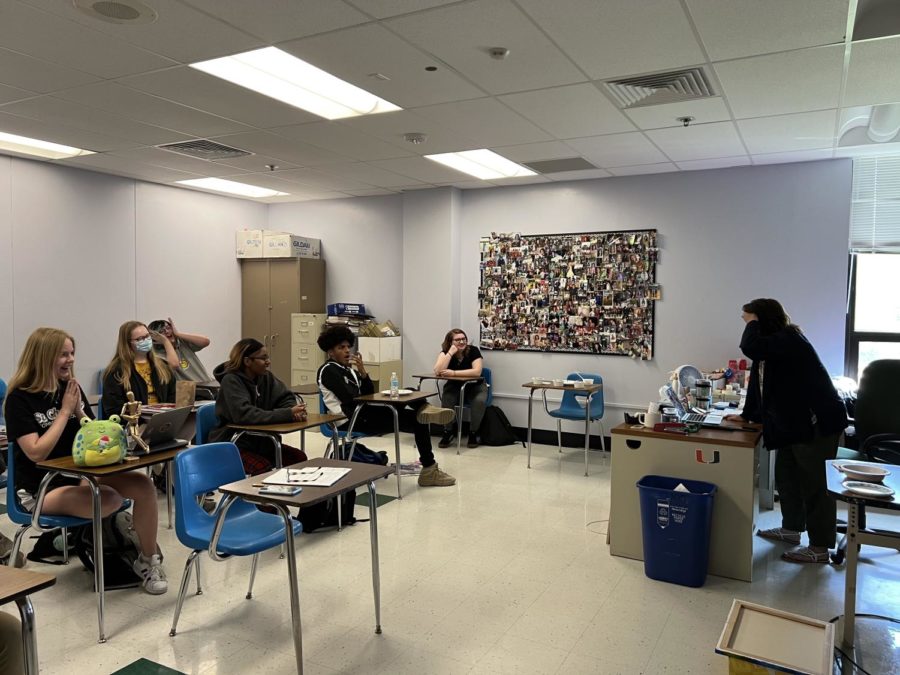A once loved profession turned into a place of burnout. With reports of teachers leaving the profession in droves, experts cite the lack of student motivation, the new atmosphere of schools after COVID, and new societal pressures on teachers that contributed to the mass exodus from the profession.
Within the last two years, many teachers chose to retire or quit teaching altogether. The numerous waves of COVID had others feeling exhausted and stressed by the job.
A teacher shortage has been on the horizon for several years. However, in the last year, likely due to the pandemic, the shortage has become a more abundant problem.
For what they do, many teachers are left feeling like they don’t receive enough compensation.
English teacher and department leader, Ms. Adam said, “Having a work/life balance as a high school ELA teacher has always seemed almost impossible. Compared to many of my friends in other fields who have fewer degrees, I receive less compensation.”
According to the Economic Policy Institute, teachers are paid almost 20% less than other workers with college degrees.
The salary difference is likely turning many teacher-bound college students away from the profession.
Over the past year, Ms. Adam has seen more applications from teachers in the middle of their careers than teachers directly out of college or student teaching.
“Prior to COVID, I feel like we saw more new teachers coming from a variety of schools and backgrounds, fresh from their student teaching experiences,” Adam said.
Another factor leading to the shortage could be due to new “societal pressures.”
“There is a wave of anti-teacher or anti-public school sentiment that is making an already difficult job feel even more arduous,” Adam said.
Ms. Ulyses, an English teacher, said she started teaching in August of 2019.
Ulyses saw the teaching shortage affect her in multiple ways, specifically the substitute shortage.
“I feel like teachers are having to cover classes, clubs, etc. a lot more and we feel guilty if we need to say no to take care of ourselves,” Ms. Ulyses said.
With shorter attention spans, a rise in phone addictions, and fewer students that care, not only has the atmosphere of schools changed, but teaching has become a lot harder for teachers.
Ms. Kuhn, a teacher at Pattonville for 29 years, said that “a lot of students are caring less and less about their success in school. It’s frustrating as a teacher to see so many students with a ton of potential giving up.”
However, teachers still found a drive to continue teaching. Ms. Adam found it within, keeping in touch with students after they graduate.
“There is so much reward, however, that I receive in working with teenagers that those friends [in other fields] don’t experience,” she said.
Ms. Adam did acknowledge that newer teachers may not experience that side of teaching yet.
“That reward of having kids stay in touch or reach out years later doesn’t necessarily happen right away,” she said.
Although many teachers were exhausted by the profession, others still found a way to persevere.
“The connections I make with my students, the relationships we build, and the discussions we have are all what remind me that they are the reasons I became a teacher to begin with,” Ulyses said.
This story was originally published on PattonvilleTODAY on May 16, 2022.




































